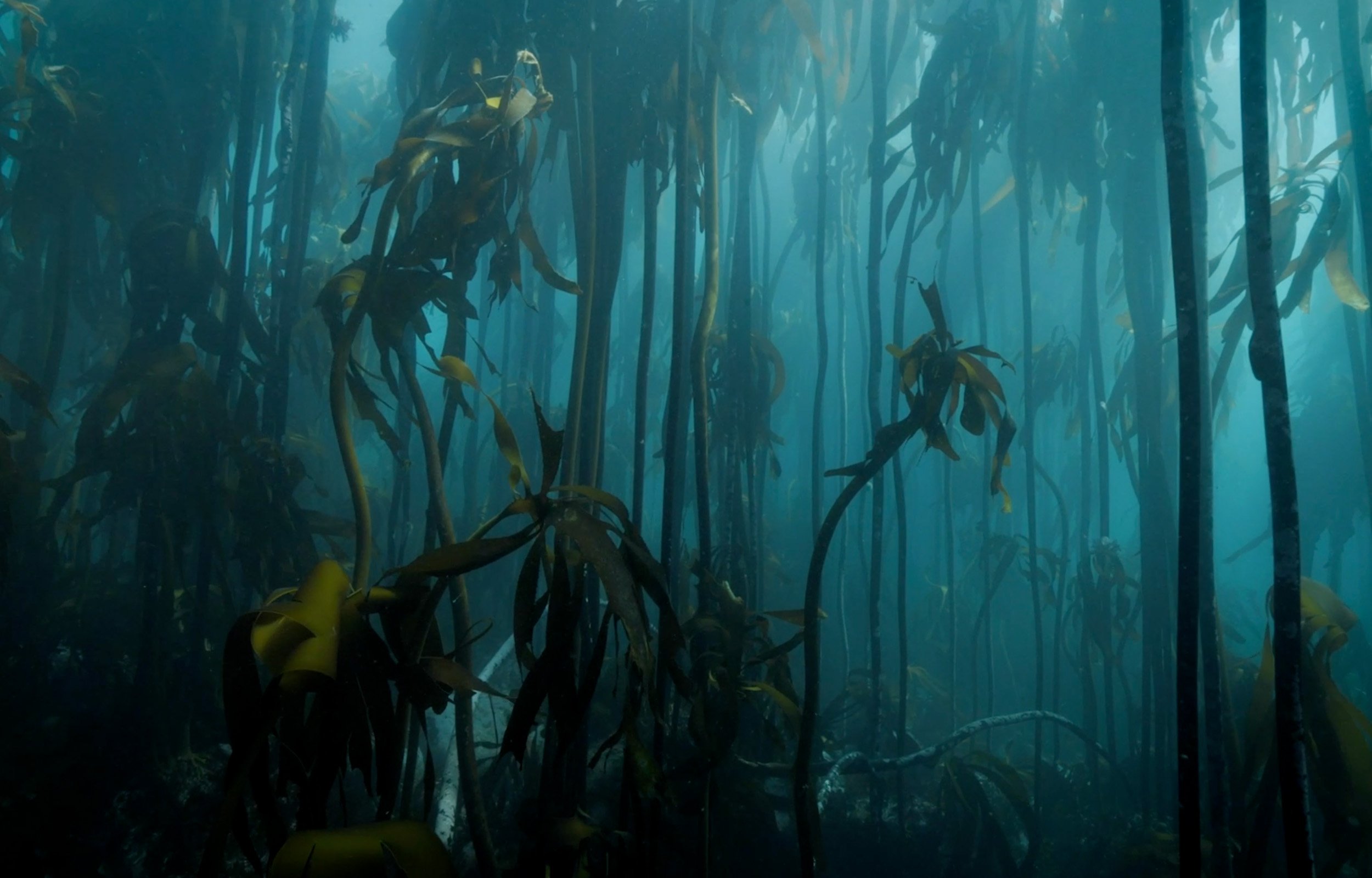
FORESTS OF THE SEA
A LEGACY PROJECT TO PROTECT AND RESTORE KELP FORESTS AROUND THE WORLD THROUGH SCIENCE, STORYTELLING AND POLICY CHANGE
THE MISSION
Kelp forests stretch across 28% of the world’s coastlines like a thin green ribbon, but if you were to condense them into a single space, they’d cover an area as large as the Amazon rainforest. Like these terrestrial forests, kelp ecosystems are critically important for planetary health, yet their disappearance has largely gone unnoticed. Kelp forests are vanishing four times faster than rainforests.
FORESTS OF THE SEA’S MISSION IS TO PROTECT AND RESTORE KELP FOREST ECOSYSTEMS AROUND THE WORLD.
This mission, in collaboration with Parley for the Oceans, Mission Blue, national partners, and individual changemakers is in line with the 30x30 target proposed by the UN Convention on Biological Diversity to protect 30% of the Earth’s biosphere by 2030.

“The forests of kelp gracing cool temperate and polar seas are as vital to planetary health, climate stability and biodiversity protection as rainforests, mangroves and coral reefs, and they are equally at risk – but are less well known.”
DR. SYLVIA EARLE
President of Mission Blue, National Geographic Society Explorer in Residence and Forests of the Sea Chief Scientist
THE FORESTS
Kelp forests cover over 28% of the world’s coastline, and are found fringing every continent in the world. Culturally, kelp forests have played a significant role in the landscape of our ancient ancestors.
The Southern African coast, swathed in a rich kelp forest ecosystem is considered the birth of human consciousness as we know it. In combination with an abundant terrestrial environment, this highly productive nearshore ecosystem would have been a key contributor to the early human diet and lifestyle. Later, as humans migrated around the world, evidence suggests that it was a ‘highway’ of kelp along the Pacific Rim that eased our passage from Asia into the Americas.
Kelp forests are not only an influential ecosystem for humanity, but can also be seen as guardians of the sea, sky and land, purifying surrounding water, regulating pH, sequestering carbon, releasing oxygen, and slowing coastal erosion. At the same time, they are home to thousands of species, making them one of the most biodiverse ecosystems in the ocean. This species’ complexity creates ecosystem resilience – a kind of buffer for the planet that helps shield us from the worst impacts of climate change.
Yet, these forests of the sea are vanishing twice as fast as coral reefs and four times faster than tropical rainforests. They are understudied, undervalued and underappreciated.

“My earliest, deepest and most powerful memories are of diving in the forests of the sea. They are one of the greatest ecosystems on this planet, and we simply can’t do enough to show the world how precious they are.”
CRAIG FOSTER
Sea Change Project co-founder, Oscar winner and co-author of Underwater Wild
THE APPROACH
Forests of the Sea is leading a holistic approach to the protection of kelp forests around the world that prioritizes and supports the development of local, Indigenous and global knowledge – using exploration, science, community involvement, policy change and media as powerful tools to shift narratives.
The key to our work is the integration and collaboration between the local and global, the citizen and the politician, nature and culture – and hearts and minds.
By fostering science, exploration, storytelling and policy work in local communities, we help people develop the tools needed to understand and protect their kelp forest ecosystems in a way that reflects an intimacy with local dynamics and politics, and inspires ingenuitive, locally-led solutions and stories.
Among our strengths is the diversity of our team with each member bringing a different expertise, perspective, and experience, all of which are freely exchanged and applied.

